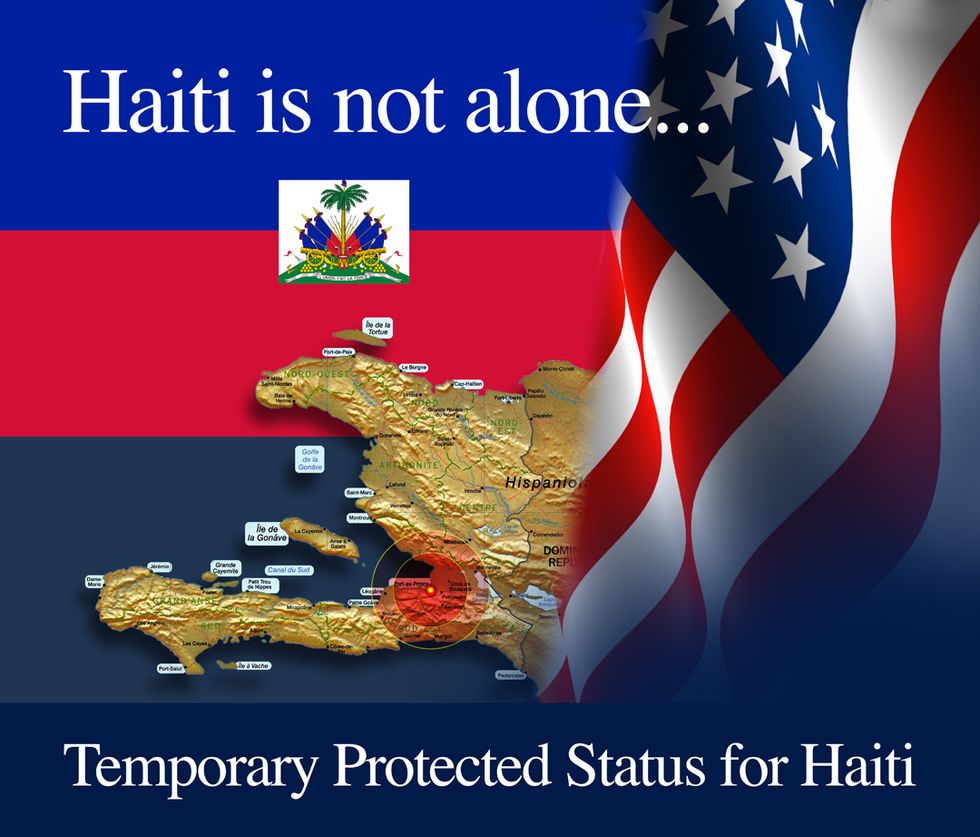The U.S. Immigration and Naturalization Service has not yet pronounced on the fate of Haitian refugees holding Temporary Protected Status (TPS). Until July 22, 2017, every card is on the table: renewing-extending TPS? Or ending it and deporting Haitian refugees?
Following Haiti’s 2010 devastating earthquake, the Obama administration instituted TPS to ease the burden on Haitians who are living illegally in the United States until the country recovers. Haiti, falling victim to all sorts of natural disasters, i.e. earthquakes, cholera epidemic, hurricanes and subsequent losses of life, properties and other resources plus social unrest, is far from a clear recovery. It is rather a remote reality not worth contemplating.
Anyway, the terms of TPS stipulate that the country has to recover before temporary privileges could stop. A logical assessment of the conditions in Haiti, six months after hurricane Mathew, would classify Haiti as a baby barely crawling out of a hole. Therefore, the awaiting decision of Trump administration regarding Haitian refugees and others must match the situation at home country, and it must also comply with the terms of the immigration stipulation.
The Haitian President, Jovenel Moise, plans to ask President Trump to extend TPS and not to deport thousands of Haitian refugees to Haiti, which would exacerbate already a bad situation. Haiti is a country in constant crisis, whether natural or pandemic.
“He hopes that it will be prolonged,” Wilson Laleau, Haiti’s former finance minister and Moïse’s chief of staff, told the Miami Herald on Tuesday. “He will officially ask that of the American government.”
Extending or renewing TPS for Haitians is a give-and-take situation. It is reported that Haitian TPS enrollees contribute nearly $35 million annually for Social Security benefits that they cannot receive. The study used data from the U.S. Census’ American Community Survey to determine that ending TPS for the roughly 300,000 Haitians, El Savadorans and Hondurans would cost U.S. taxpayers $3.1 billion.
The adage, "a friend in need is a friend indeed," is at the core of the Haitian-American relationship. Haiti is only 700 miles off Florida coast, a country whose nationals fought in Savannah alongside the French and the Americans against the British, also a country that is under the American sphere of influence. For all these reasons, if Trump administration ends TPS privileges of all countries involved, Haiti is one that should be exempt.
On the other hand, Trump administration is looking into the criminal activities of Haitians who are in the United States under a special program which is up for renewal. No one has any objection to Homeland Security deporting Haitians who got involved in crimes. However, considering the volatile situation in Haiti, the human request that demands a heartfelt response is about the law-abiding Haitians, those hard-working and tax-paying individuals, men and women with families who call the United States home. Don't they deserve a piece of the American pie?
Like Ronald Reagan did in 1986 and Bill Clinton in the 1990s, legalizing every hard working Haitian refugee eagerly awaiting TPS renewal would be the sound thing to do. Such a benevolent gesture would be historic and reminiscent to the Pilgrims’ reception in the United States of America in 1620.
Trump’s words during the presidential campaign are now being put to the test. Later, Trump told the crowd that he had come to “listen and learn” and to build a new relationship with the Haitian community. “Whether you vote for me or not, I really want to be your biggest champion,” he said.

















